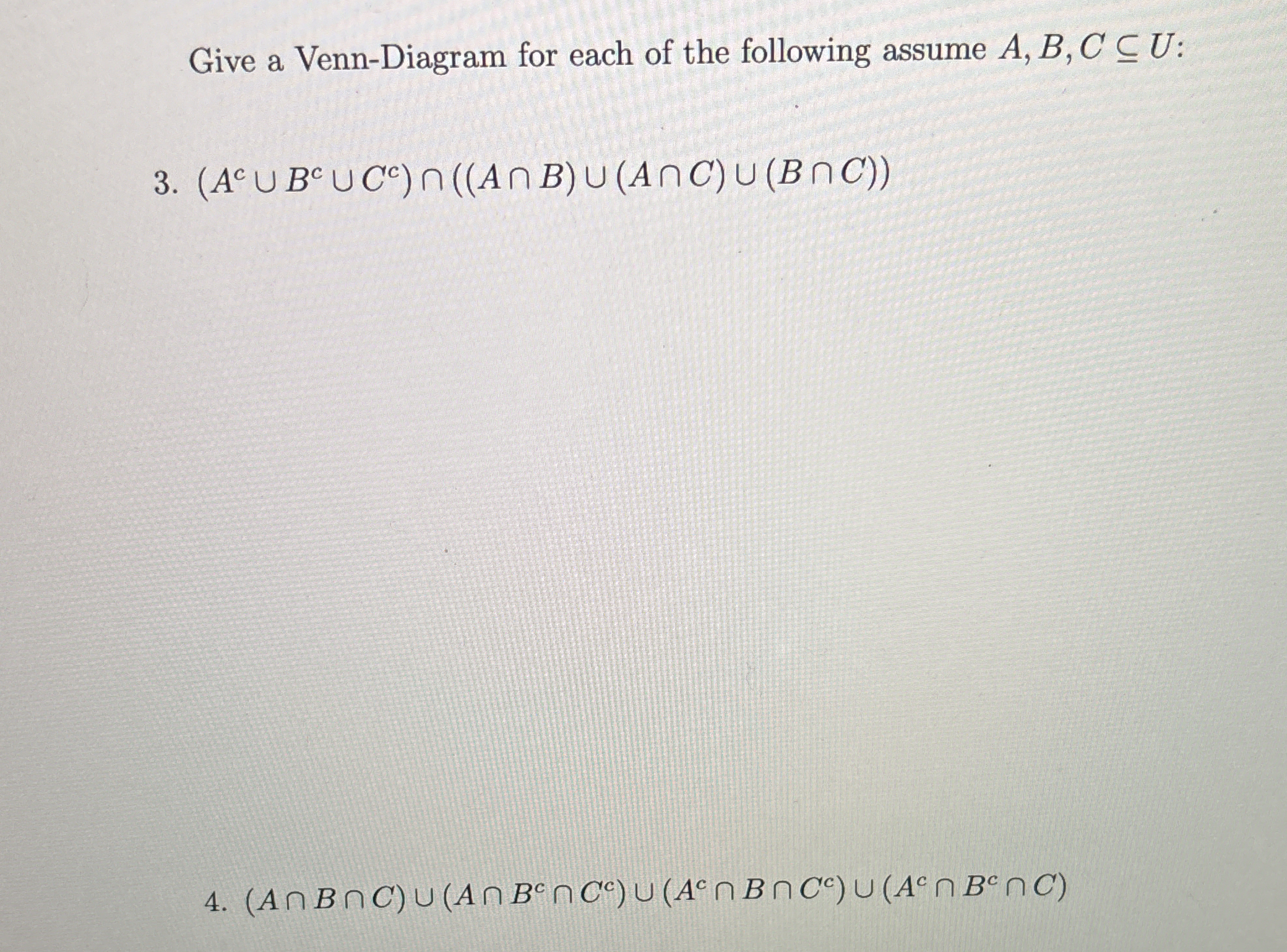Give a Venn Diagram for each of the following assume A, B, C ⊆ U: (Aᶜ ∪ Bᶜ ∪ Cᶜ) ∩ ((A ∩ B) ∪ (A ∩ C) ∪ (B ∩ C))

Understand the Problem
The question is asking for Venn diagrams to represent specific set operations for given sets A, B, and C. It involves applying union and intersection operations as outlined in the mathematical expressions provided.
Answer
The resulting area is the intersection of the complemented sets with the unions of intersections of the original sets, depicted in a shaded Venn diagram.
Answer for screen readers
The result consists of the shaded regions in the Venn diagram that indicate elements that are not in any one set while being part of the intersections of the remaining sets.
Steps to Solve
- Identify the components of the expression
The expression to analyze is $(A^c \cup B^c \cup C^c) \cap ((A \cap B) \cup (A \cap C) \cup (B \cap C))$.
- Break down the union of complements
Start with the complement union $A^c \cup B^c \cup C^c$. This represents all elements that are not in sets $A$, $B$, or $C$.
- Break down the intersection of intersections
Next, analyze the second part $((A \cap B) \cup (A \cap C) \cup (B \cap C))$. This part consists of all elements that belong to at least two of the sets $A$, $B$, or $C$.
- Combine both components using intersection
Now apply the intersection: $$(A^c \cup B^c \cup C^c) \cap ((A \cap B) \cup (A \cap C) \cup (B \cap C))$$ This gives us elements that are not in $A$, $B$, or $C$, but are also in at least two of the sets.
- Draw the Venn Diagram
In the Venn diagram, shade the areas that correspond to $A^c$, $B^c$, or $C^c$ that also overlap with regions where at least two sets intersect. The resulting shaded area represents the solution for the given expression.
The result consists of the shaded regions in the Venn diagram that indicate elements that are not in any one set while being part of the intersections of the remaining sets.
More Information
This Venn diagram visually represents set operations. Understanding how complements work with unions and intersections is crucial for problem-solving in set theory.
Tips
- Confusing the union and intersection operations can lead to incorrect results. Remember that union means "or" and intersection means "and."
- Forgetting the complements when drawing the Venn diagram can miss essential areas that need shading.
AI-generated content may contain errors. Please verify critical information